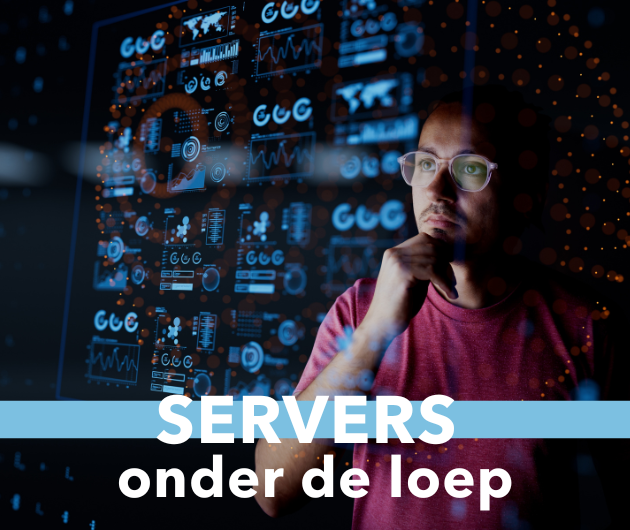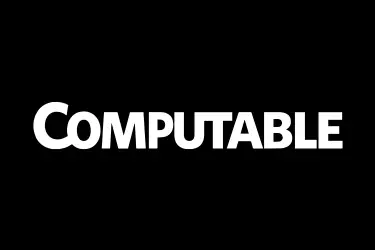Een redacteur van Computable reist op woensdag 17 oktober 2012 af naar het Engelse Londen om te praten met Mark Hurd van Oracle. Hij is na een turbulente tijd bij ict-leverancier HP overgestapt naar de bedrijfssoftwareleverancier en is daar aangesteld als president. Daarmee is hij de tweede man van Oracle geworden achter ceo Larry Ellison. Computable stelt zijn lezers in staat om vragen in te dienen waarvan er zoveel mogelijk aan Hurd zelf gesteld zullen worden.
De afgelopen jaren is er bij Oracle veel veranderd. De traditionele bedrijfssoftwareleverancier nam in april 2009 infrastructuurleverancier Sun Microsystems over, waardoor Oracle ook ineens leverancier van hardware werd. De integratie verliep niet zonder slag of stoot en ook de markt was niet tevreden over het nieuwe verkoopbeleid van Oracle op Sun-producten. Gevolg was dat het marktaandeel van Oracle-hardware de daarop volgende jaren kelderde.
Inmiddels lijkt het tij gekeerd en presteert Oracle stabiel met zijn aangekochte hardware. Dit geldt ook voor de bedrijfssoftware. Oracle kijkt weer vooruit. Dit blijkt ook uit de aankondigingen die allemaal gedaan worden tijdens Oracle Open World in San Francisco. De meest opvallende is wel dat ceo Larry Ellison het einde van disk-opslag aankondigde.
Stel je vraag
Oracle is dus weer bezig met de toekomst. Reden om hierover met Mark Hurd te gaan praten. Computable wil hier graag zijn lezers bij betrekken. De redactie vraagt zich af wat jij vanuit jouw professie zou willen vragen aan Mark Hurd. De vraag dient te gaan over ontwikkelingen binnen Oracle op het gebied van strategie, technologie, producten, de markt of de toekomst. Stel jouw vraag door deze in te vullen in het reactie veld onderaan dit artikel . Computable verzamelt alle vragen en zal de meest interessante aan Mark Hurd voorleggen. De interessante vragen die niet gesteld kunnen worden, zullen worden voorgelegd aan de Nederlandse directeur Reinier van Grieken.





1. How sees Oracle the strategy with Java compared to Android and opensource?
2. What is the strategy from Oracle databases in the Cloud?
3. What is the strategy of Oracle in the Healthcare market, and E-Health. Is Oracle investing in this market for E-health solutions?
As companies are moving into the cloud (which is pushed by Oracle as well), and start to dynamically build, scale-out and destroy (development) environments in minutes, customers need maximum flexibility and elasticity. How will Oracle manage its licensing in such a world? Both appear to be 180 degrees opposite from each other right now, yet Oracle is pushing heavily on the cloud concept.
It would be very interesting to understand what Oracle’s vision and strategy with regards to security, specifically in the area of Identity Management, will be. Is Oracle planning on merging the products originating from Oracle and Sun; will there be an integrated product suite?
Oracle heeft de afgelopen jaren hard gewerkt om een geintegreerd platform te creeren (Fusion Middleware, Fusion Apps, ExaData, ExaLogic) met daarnaast veel investeringen in markt specifieke oplossingen.
Dit gecombineerd met de CLOUD boodschap op OpenWorld, lijkt een Exa Banking, Exa Telco of Exa Insurance oplossing obv industrie standaarden (ACORD, eTOM) een voor de handliggende stap.
Overweegt Oracle deze stap om markt specifieke CLOUD oplossing (zoals ExaInsurance) te gaan bieden met een pay-per-use afrekenmodel ?
Oracle’s core business is traditionally license sales as opposed to services. As such what is Oracle’s challenge in defining its Oracle Cloud offer?
The Exadata server offer is from its origin technically oriented towards Datawarehousing, rather then OLTP; technical assesments show that this is still the case worth version 2 and version 3; as such performance predictions for OLTP are hard to predict and sizing will not be realistic, resulting in mandatory upgrades, increasing TCO. What is Oracle going to do to provide a more realistic platform for OLTP? Who will carry the costs for upgrades when performance is lacking in production due to the foregoing?
Given Oracle’s offer expansion in terms of hardware, both SUN Sparc and Exa servers, does this mean that Oracle exits from its longstanding portability strategy and openness? And how does Oracle envision its partnership with hardware vendors? Is vendor lock-in not the result leading to higher pricing and dependability?
1 During OOW it was clear: the Oracle message is all about the stack. Certainly this has advantages for those who choose to go all in and adopt all layers of the Oracle stack.
There are however many customer who can not afford to go there of who feel a possible vendor lock in. What is Oracle’s message to those who choose for a best of breed approach. Will Oracle still be the right choice for them ?
2 The message at OOW was the stack and Oracle Fusion Applications, there was only little attention for those Oracle customers who have choosen to develop their own solutions based on Oracle technology as the Db, FMW en ADF.
What is Oracle commitment to those customers who don’t see standard applications as the solution?
Ik ben erg benieuwd naar de visie van Oracle t.o.v. de toekomst en dan met name op de ontsluiting van de data via het web (of via webservices). Dit omdat databases, en dan met name de spatial veelal lokaal draaien. Hoe ziet de toekomst eruit? En met het oog op privacy en security voor overheden?
Ik ben heel erg benieuwd hoe SAP en Oracle zich tot elkaar verhouden, zeker nu ASE (de Database van SAP zelf) er is. Betekent dit dat op termijn Oracle eigenlijk geen SAP database meer is of in ieder geval in veel minder grote aantallen. Daarnaast ben ik erg benieuwd of Oracle al een serieuze optie voor Mobile heeft. Is er al een platform à la SUP en Avaria?
Oracle ATS seems to be a disinvestment. The testing tool does not fit on Oracle products and has no foot hold in the Netherlands and probably in the world.
Are you planning to continue with Oracle ATS.
een tweetal vragen:
* Als ik het goed heb, werkt Oracle in de implementatie-trajecten vooral op basis van uren, en neemt dus zelf geen project-risico; gezien de veranderingen in de markt (oa SaaS), lijkt dit op termijn moeilijk vol te houden: is het te verwachten dat het verdienmodel van Oracle (licenties+uren) in de komende jaren substantieel gaat veranderen?
* Hoe ziet hij de opkomst van cloud-diensten als bv die van Amazon, welke complete database-oplossingen aanbieden voor een fractie van de kosten (en operationele zorgen)